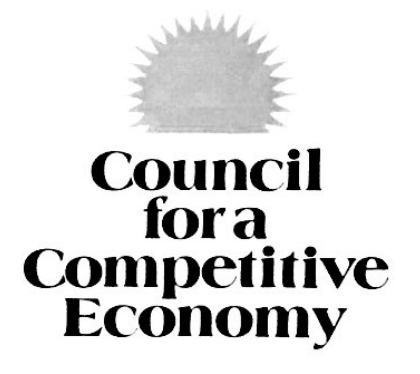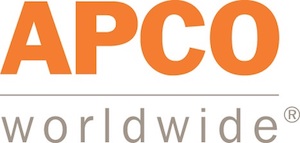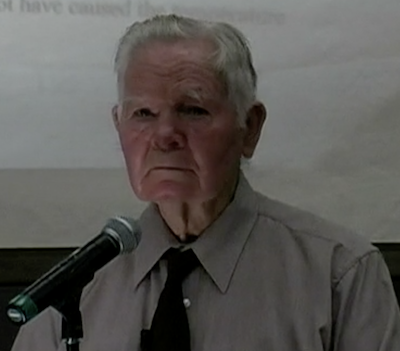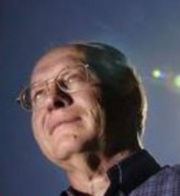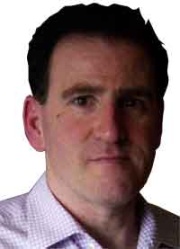Council for a Competitive Economy
Background
The Council for a Competitive Economy (CCE) was a group founded by Charles Koch in May 1979 and made up of approximately 2,000 business leaders who pledged to lobby Congress to end corporate subsidies.1David R. Francis. “Some free enterprisers who insist on no subsidies,” Christian Science Monitor, September 26, 1980. Archived June 17, 2019. Archive.fo URL: https://archive.fo/JtyS4 2Bill Wilson and Roy Wenzyl. “The Kochs’ quest to save America,” The Wichita Eagle, October 13, 2012. Archived June 17, 2019. Archive.fo URL: https://archive.fo/OSSGm
Mother Jones described the group as a “short-lived outfit focused on dissuading the business community from accepting government subsidies, bailouts, and other perks. These forms of corporate welfare, Charles believed, were making free-market advocates look hypocritical. ‘How discrediting it is for us to request welfare for ourselves while attacking welfare for the poor,’ he wrote in one appeal to the business community. ‘Our critics rightfully complain that we want socialism only for the rich.’”3Daniel Schulman, Tasneem Raja, and Julia Lurie. “The Koch 130,” Mother Jones, November 3, 2014. Archived June 17, 2019. Archive.fo URL: https://archive.fo/dWwp6
Roger W. Wilcke served as the paid president and CEO of the Council for a Competitive Economy from August 1979 to June 1984. In his own words, Wilcke described his role leading the organization:4“An Appropriate Ethical Model for Business and a Critique of Milton Friedman’s Thesis” (PDF), The Independent Review, , v. IX, n. 2, Fall 2004. Archived .pdf on file at DeSmog.
“For five years, from 1979 to 1984, I was deeply involved in an effort to develop a new national business association through which it was hoped that a contingent of entrepreneurs and executives could be persuaded that their firms ought to refrain, to the maximum extent possible, from seeking to use government resources to achieve their objectives.
“Through publications and testimony, this organization worked to introduce, defend, and promote the following basic concept: for a corporation or other business
entity to commit itself to compete solely, or primarily, through a free and open market, relying thereby for its success on the voluntary choices of consumers, is an ethical ‘high road.’“We believed that if we could convince even a modest number of prominent corporate leaders and associations to admit publicly that, whatever their practical constraints, they at least believed in and aspired to such a straight and narrow course, the public perception of economic competition and profits would begin to change and an appropriate standard by which to judge the social behavior of business enterprises would emerge. Public awareness of such a high road could not help but focus attention on those who seek privileges.”
Council for a Competitive Economy began to push its agenda at the same time as a government bailout proposal for the Chrysler Corporation, an action Wilcke said his organization viewed as “unethical.” He lamented they could not do more to influence public perception:
“Regrettably, it was almost impossible to thrust that perspective into the public debate. Instead, the media, with help from new ‘philosophers of business,’ focused mainly on the ‘ethics’ of saving jobs.”
David Boaz, former executive director for Council for a Competitive Economy,5“The Libertarian Mind,” Libertarianism.org. Archived June 17, 2019. Archive.fo URL: https://archive.fo/1APyv went on to serve as executive vice president of the Cato Institute.6“Contributors,” Cato Institute. Archived June 17, 2019. Archive.fo URL: https://archive.fo/HzyvN
CCE has been described as a “lobbying organization”: “’We’ve got intellectual ammunition to fight thirty wars,’ says Fred Smith, the council’s chief lobbyist. ‘What we need are more soldiers.’” At the time of that October 1983 article, CCE was reportedly having trouble funding its $300,000 annual budget.7“Windsurfing on the Anti-Government Tide,” Fortune, October 3, 1983. Retrieved from UCSF Industry Documents Library. Bates No. TI12511851.
CCE & Tobacco
September 1985
Council for a Competitive Economy was one of several organizations supporting an amendment proposed by Member of Congress Thomas E. Petri that would deregulate tobacco through an amendment to the 1981 Farm Bill. “The tobacco program is costly, counterproductive, and unfair. If any federal program should be axed, this is it. Please help us eliminate it,” the letter concluded.8Thomas E. Petri. “Dear Colleague, There are five main reasons for deregulating tobacco,” Congress of the United States House of Representatives, September 30, 1985. Retrieved from UCSF Industry Documents Library. Bates No. 2074122625.
CCE’s stance put it at odds with some pro-tobacco organizations like The Tobacco Institute, while aligning it with unlikely allies like the American Cancer Society and the American Public Health Association. While the proposed amendment would implement a more free-market approach to tobacco growing by cutting regulation, it would also cut federal subsidies feeding tobacco companies.9“To: Executive Committee, Committee of Counsel,” The Tobacco Institute, October 15, 1981. Retrieved from UCSF Industry Documents Library. Bates No. TI04450120.
Other pro-tobacco groups, like United Tobacco Growers, were actually in support of the amendment, as one tobacco publication notes: “United Tobacco Growers, though in principle in favor of price support, would rather have no program than continue to pay what they vew are outrageous leasing rates for the right to grow tobacco.”10Issues Monitor (Tobacco Merchants Association of the U.S.) Vol. 4 No. 3 (May-June 1983). Retrieved from UCSF Industry Documents Library. Bates No. TI49661838.
February 1985
CCE was included on a list of organizations “which have either publicly stated their opposition to excise taxes or voted against them through their representatives on the President’s 1982 Advisory Council on Social Security.” The list was sent to Fred Panzer of the Tobacco Institute, and notes that not all of the groups listed necessarily expressed specific opposition but rather oppose “the imposition or increase of taxes in general.”11“Subject: Organizations Opposed to the Imposition or Increase of Excise Taxes,” A-K Associates, Inc. Retrieved from UCSF Industry Documents Library. Bates No. TI51730864.
November 1983
A report on the RJ Reynolds “social responsibility program” names the Council for a Competitive Economy as a potential ally:12“INTERIM REPORT ON RESEARCH FOR THE RJR SOCIAL RESPONSIBILITY PROGRAM,” RJR, November 1983. Retrieved from UCSF Industry Documents Library. Bates No. 515801212-515801260.
“We have made preliminary contact with several of the influential Washington-based political groups that are known to strongly support a competitive marketplace and to oppose government intrusion in business or the life of the individual. They share an emphasis on freedom of choice,” the document notes.
Groups named include The Libertarian Party, the Cato Institute, and The Council for a Competitive Economy.13“INTERIM REPORT ON RESEARCH FOR THE RJR SOCIAL RESPONSIBILITY PROGRAM,” RJR, November 1983. Retrieved from UCSF Industry Documents Library. Bates No. 515801212-515801260.
The document adds: “Although all three organizations are sometimes characterized by mainstream organizations as ‘right-wing,’ they will be useful in guiding us to potential political/academic/professional supporters.”
October 1981
Richard W. Wilcke, President of CCE, sent out a letter on official Council for Competitive Economy letterhead urging members of congress to pass a tobacco deregulation amendment offered during debate on the 1981 Farm Bill.14“Dear Congressman:” Council for a Competitive Economy, October 13, 1981. Retrieved from UCSF Industry Documents Library. Bates No. 680571185.
1981 10 13 Letter to Congress Tobacco Deregulation (Text)
The above letter was highlighted among what the Tobacco Institute described as “anti-tobacco propaganda” from 1981. While the proposed amendment would “completely deregulate the growing of tobacco and allow all Americans to grow and sell tobacco freely”—as a letter by the National Taxpayers Union described it— it would also end the price support system where the federal government effectively subsidized the tobacco industry.15“To: Executive Committee, Committee of Counsel,” The Tobacco Institute, October 15, 1981. Retrieved from UCSF Industry Documents Library. Bates No. TI04450120.
Council for a Competitive Economy & Competitive Economy Foundation
The Council for a Competitive Economy was listed at the following address, according to a document on file at the Ronald Reagan Presidential Library:16“From Heritage Foundation Computer List,” (PDF), Collection: Blackwell, Morton: Files Folder Title: Balanced Budget Amendment (2 of 3). Ronald Reagan Presidential Library, Digital Library Collections. Archived .pdf on file at DeSmog.

Richard W. Wilcke described his role with CCE, noting it was temporarily run by Citizens for a Sound Economy:17“An Appropriate Ethical Model for Business and a Critique of Milton Friedman’s Thesis” (PDF), The Independent Review, , v. IX, n. 2, Fall 2004. Archived .pdf on file at DeSmog.
“This organization, which I served as paid president and CEO from August 1979 to June 1984, was the Council for a Competitive Economy. Though kept nominally active for a period of months afterward by Citizens for a Sound Economy, then a new organization, the council has now been defunct for many years. Described as ‘a national membership organization of businesses and individuals,’ it had business members in all fifty states. The organization’s goals were phrased in several ways, but the most commonly used description was: ‘to promote an economy operated and structured by market, rather than political, forces. The Council stresses the justice of economic freedom, voluntary trade, private property and individual rights.’”
The similarly-titled Competitive Economy Foundation (CEF) has been associated with the same address, according to one of its publications:18“Using Government Power: Business Against Free Enterprise” (PDF), Competitive Economy Foundation. Archived .pdf on file at DeSmog.

The Competitive Economy Foundation describes itself as follows:19“Using Government Power: Business Against Free Enterprise” (PDF), Competitive Economy Foundation. Archived .pdf on file at DeSmog.
“The Competitive Economy Foundation is a non-profit organization that works to build within the business community a deeper understanding of the economic, moral and political aspects of a free, competitive economy. Foundation activities include seminars, research and coalition development; our procedure clarifies the fundamentals of economic freedom and links these theories to practical yet innovative answers to vital business problems:
“CEF challenges its business audience-executives, students, journalists, end policy-makers—with strategic alternatives based on market rather than political or special interest forces. The Competitive Economy Foundation contests those who use government power to escape the rigors of competition by reaffirming the sovereignty of consumer demand in the marketplace.,
“The Competitive Economy Foundation, chartered In 1981, is an exempt organization under Federal Rule 501(c)(3) . As such, all donations to CEF are tax deductible.”
Staff have also shared affiliations with CCE and CEF. Fred L. Smith, former director of government relations for Council for a Competitive Economy, later went on to found the Competitive Enterprise Institute where he served as CEI’s President from 1984 until 2013, later working as the Director of CEI’s Center for Advancing Capitalism.20“Fred L. Smith, Jr.: Founder,” Competitive Enterprise Institute. Archived May 17, 2017. Archive.is URL: https://archive.is/sA7xB
In addition to CCE, Smith has also been listed as affiliated with Competitive Economy Foundation.21Paul Ehrlich et al. The Bet. August 2013.
In a November 1995 memo addressed to Thomas Borelli at the Philip Morris tobacco company, Fred L. Smith described his transition from CCE to the Competitive Enterprise Institute:22“The Despairing Optimist,” CEI, November 9, 1995. Retrieved from UCSF Industry Documents Library. Bates No. 2048261141-2048261145.
“To begin with, let me review briefly the reasons why CEI was created back in that prophetic year, 1984. My work on a range of issues at the Council for a Competitive Economy had convinced me that, while economic liberty forces were mounting an increasingly effective intellectual attack, this alone would not lead to policy change – certainly not in any rapid fashion. I noted that while the left had a shoddy policy line, its marketing abilities were far superior to ours.
Thus, CEI was to be a different organization, bridging the gap between analysis and advocacy – we should seek to integrate mind and muscle, if you will. […]”
Stance on Climate Change
While CCE does not appear to have released any official statements on climate change, its director of government relation Fred L. Smith—who went on to found the Competitive Enterprise Institute—has opposed a U.S. Climate Action Partnership, describing it as “all pain, no gain” even “if one accepts the alarmist views of global warming.”23“Global Climate Change […]” C-SPAN, February 13, 2007. Archived video on file at DeSmog.
CEI, while receiving millions of dollars from Koch-related foundations and oil companies including ExxonMobil, has positioned itself firmly in the field of climate change denial. According to its website: “CEI questions global warming alarmism, makes the case for access to affordable energy, and opposes energy-rationing policies, including the Kyoto Protocol, cap-and-trade legislation, and EPA regulation of greenhouse gas emissions.”24“Energy and Environment,” Competitive Enterprise Institute. Archived June 20, 2019. Archive.fo URL: https://archive.fo/FSa8r
Funding
While funding details are scarce for the Council for a Competitive Economy, given its shared address, it seems plausible the Competitive Economy Foundation (CEF) may have financial ties to CCE. This has not yet been verified.
Key People
Council for a Competitive Economy (CCE)
- Charles Koch — Formerly described as chairman.25“Using Government Power: Business Against Free Enterprise” (PDF), Competitive Economy Foundation. Archived .pdf on file at DeSmog.
- Richard W. Wilcke — Former president.26David R. Francis. “Some free enterprisers who insist on no subsidies,” Christian Science Monitor, September 26, 1980. Archived June 17, 2019. Archive.fo URL: https://archive.fo/JtyS4 27Daniel Schulman. “Charles Koch’s Brain,” Politico, September/October 2014.
- David Boaz — Former executive director.28“The Libertarian Mind,” Libertarianism.org. Archived June 17, 2019. Archive.fo URL: https://archive.fo/1APyv
- Fred L. Smith, Jr. — Former director of government relations/lobbyist.29“Fred L. Smith, Jr.: Founder,” Competitive Enterprise Institute. Archived May 17, 2017. Archive.is URL: https://archive.is/sA7xB
- Dominick. T. Armentano — Member, Editorial and Advisory Board:30“Brief Resume. ” Retrieved from UCSF Industry Documents Library. Bates No. TI51160649-TI51160660. According to a resume on file at the UCSF industry documents library, D.T. Armentano has been professor of economics at the University of Hartford where he began teaching “economics and law, government regulation of business, energy economics, money and banking, and business and society in the MBA program” in 1967. His other affiliations include the advisory boards of the Center for the Defense of Free Enterprise (CDFE), and the editorial board of the Journal of Libertarian Studies, and REASON papers.31“Resume: Dr. D. T. Armentano.” Retrieved from UCSF Industry Documents Library, bates no. TI50911598.
CCE Board of Directors
A October 1981 letter to Congress from the Council for a Competitive Economy listed the following members of its board of directors:32“Dear Congressman:” Council for a Competitive Economy, October 13, 1981. Retrieved from UCSF Industry Documents Library. Bates No. 680571185.
- Charles G. Koch — Chairman, Koch Industries, Inc,.
- Richard W. Wilcke — President, Council for a Competitive Economy
- Joseph E. Coberly, Jr. — President, J.E. Coberly, Inc.
- Herbert C. Cornuelle — Dillingham Corporation. Reportedly helped form CCE in 1979.33Barry Meier. “Herbert Cornuelle, 76, Dies; Youngest Dole Co. President,” The New York Times, August 25, 1996. Archived June 20, 2019. Archive.fo URL:https://archive.fo/Tq7Pj
- Henry A. Getz — President, Morton Buildings, Inc.
- P.W. Gifford — Former Chairman, Gifford-Hill & Co. Inc.
- J.P. Humphreys — President, Tamko Asphalt Products Co., Inc.
- Samuel H. Husbands, Jr. — Vice President, Dean Witter Reynolds, Inc.
- F. Kenneth Iverson — President, Nucor Corporation
- Robert D. Kephart — President, Kephart Communications, Inc.
- William L. Law — President, Cudahy Tanning Co., Inc.
- Lewis E. Lehrman — Chairman, Executive Committee, Rite Aid Corporation
- Andrew M. Lewis — President, Best Products Co., Inc.
- David H,. Padden — President, Padden & Col., Inc.
- Stephen A. Snow — Chairman, Family Entertainment, Inc.
- Philip M. Spicer — President, One Jefferson Street, Inc.
- Martin Stone — Chairman, Monogram Industries
- William Vandersteel — President, Ampower Corporation
Competitive Economy Foundation (CEF)34“Using Government Power: Business Against Free Enterprise” (PDF), Competitive Economy Foundation. Archived .pdf on file at DeSmog.
CEF Board of Advisors
- Dominick T. Armentano — Professor of Economics, University of Hartford.
- Robert W. Crandall — Senior Fellow, The Brookings Institution.
- Robert Hessen — Senior Fellow, Hoover Institution.
- Richard B. McKenzie — Professor of Economics, Clemson University. See CV, via UCSF Industry Documents Library.35“VITAE Richard B. McKenzie,” January 1988. Retrieved from UCSF Industry Documents Library, bates no. TI50910925.
CEF Board of Directors
- J. P. Humphreys — President
- William Vandersteel — Vice President
- Richard W. Wilcke — Secretary/treasurer
- Gerard Bourgeois
- John C. Holloway
- Robert T. Morris Jr.
- John V. Silcox
- Richard J. Stephenson
Actions
1981-1982
According to The Reason Foundation‘s annual report, the Council for a Competitive Economy held a conference where the authors and editor of the Reason book Instead of Regulation attended. The book was edited by Robert Poole, with contributors George Benston, Alan Reynolds, and Ida Walters. The Reason Foundation described the book as providing “workable alternatives to 10 major federal regulatory agencies.”36“The Reason Foundation Annual Report, Fiscal Year 1981/1982,” The Reason Foundation. Retrieved from UCSF Industry Documents Library. Bates No. TI12770195-TI12770218.
1979
A publication of the Competitive Economy Foundation, on file at The Heartland Institute, reports that Charles Koch—listed as “chairman of Koch Industries and the Council” sent a widely disseminated letter on the “many ways business currently obtains aid from government and then asks, ‘What’s going on here? Have America’s business leaders gone mad? Why are they cutting their own throats-by voluntarily and systematically delivering themselves and their companies into the hands of government regulators?’”37“Using Government Power: Business Against Free Enterprise” (PDF), Competitive Economy Foundation. Archived .pdf on file at DeSmog.
May 1979
The Christian Science Monitor reported the Council for a Competitive Economy was initially formed by a group of 50 businessmen and led by Richard W. Wilcke:38David R. Francis. “Some free enterprisers who insist on no subsidies,” Christian Science Monitor, September 26, 1980. Archived June 17, 2019. Archive.fo URL: https://archive.fo/JtyS4
“[Wilcke] is an advocate of what economists call ‘laissez faire’ capitalism – the type of economy urged in the 18th century by Scottish economist Adam Smith or in this century by economists of the Austrian school (Friedrich von Hayek and Ludwig von Mises) or the Chicago school (Milton Friedman).
Indeed, Mr. Wilcke saves his most scathing remarks for those businessmen who ‘on Monday bemoan government regulation and on Tuesday go to Washington to ask for government help’,” CSM reported.
The group would aim for a “less-regulated, freer business environment, with a shrunken role for the government.” Its methods would include lobbying in Congress and testimony at congressional hearings.
For example, in testimony to the House Ways and Means Committee, Mr. Wilcke called for drastic tax cuts to “let taxpayers keep their money to spend, save, or invest as they please,” CSM reported.
“Anything which interferes with this process is a cost to consumers. Laissez faire capitalism ought to be more popular with consumers.” Wilcke said.
Related Organizations
- Competitive Economy Foundation — Has shared an address, and staff members.
- Competitive Enterprise Institute — Following his work with CCE, Fred L. Smith went to found CEI. 39“The Despairing Optimist,” CEI, November 9, 1995. Retrieved from UCSF Industry Documents Library. Bates No. 2048261141-2048261145.
- Citizens for a Sound Economy (CSE) — Before becoming defunct, CEF was reportedly run by CSE for “a period of months” while CSE was still a relatively new organization.40“An Appropriate Ethical Model for Business and a Critique of Milton Friedman’s Thesis” (PDF), The Independent Review, , v. IX, n. 2, Fall 2004. Archived .pdf on file at DeSmog.
Contact & Address
The Council for a Competitive Economy was listed at the following address, according to a document on file at the Ronald Reagan Presidential Library:41“From Heritage Foundation Computer List,” (PDF), Collection: Blackwell, Morton: Files Folder Title: Balanced Budget Amendment (2 of 3). Ronald Reagan Presidential Library, Digital Library Collections. Archived .pdf on file at DeSmog.

This is the same address as was used for a period by the Kochs’ Citizens for a Sound Economy.
In addition to its address at 1st St. in Washington, another address was listed on the resume of D. T. Armentano, who was on the Editorial and Advisory Board:42“Resume: Dr. D. T. Armentano.” Retrieved from UCSF Industry Documents Library, bates no. TI50911598.
110 D Street, Suite 209
Washington, D.C.
20003
Other Resources
- “Council for a Competitive Economy,” LittleSis profile.
Resources
- 1David R. Francis. “Some free enterprisers who insist on no subsidies,” Christian Science Monitor, September 26, 1980. Archived June 17, 2019. Archive.fo URL: https://archive.fo/JtyS4
- 2Bill Wilson and Roy Wenzyl. “The Kochs’ quest to save America,” The Wichita Eagle, October 13, 2012. Archived June 17, 2019. Archive.fo URL: https://archive.fo/OSSGm
- 3Daniel Schulman, Tasneem Raja, and Julia Lurie. “The Koch 130,” Mother Jones, November 3, 2014. Archived June 17, 2019. Archive.fo URL: https://archive.fo/dWwp6
- 4“An Appropriate Ethical Model for Business and a Critique of Milton Friedman’s Thesis” (PDF), The Independent Review, , v. IX, n. 2, Fall 2004. Archived .pdf on file at DeSmog.
- 5“The Libertarian Mind,” Libertarianism.org. Archived June 17, 2019. Archive.fo URL: https://archive.fo/1APyv
- 6“Contributors,” Cato Institute. Archived June 17, 2019. Archive.fo URL: https://archive.fo/HzyvN
- 7“Windsurfing on the Anti-Government Tide,” Fortune, October 3, 1983. Retrieved from UCSF Industry Documents Library. Bates No. TI12511851.
- 8Thomas E. Petri. “Dear Colleague, There are five main reasons for deregulating tobacco,” Congress of the United States House of Representatives, September 30, 1985. Retrieved from UCSF Industry Documents Library. Bates No. 2074122625.
- 9“To: Executive Committee, Committee of Counsel,” The Tobacco Institute, October 15, 1981. Retrieved from UCSF Industry Documents Library. Bates No. TI04450120.
- 10Issues Monitor (Tobacco Merchants Association of the U.S.) Vol. 4 No. 3 (May-June 1983). Retrieved from UCSF Industry Documents Library. Bates No. TI49661838.
- 11“Subject: Organizations Opposed to the Imposition or Increase of Excise Taxes,” A-K Associates, Inc. Retrieved from UCSF Industry Documents Library. Bates No. TI51730864.
- 12“INTERIM REPORT ON RESEARCH FOR THE RJR SOCIAL RESPONSIBILITY PROGRAM,” RJR, November 1983. Retrieved from UCSF Industry Documents Library. Bates No. 515801212-515801260.
- 13“INTERIM REPORT ON RESEARCH FOR THE RJR SOCIAL RESPONSIBILITY PROGRAM,” RJR, November 1983. Retrieved from UCSF Industry Documents Library. Bates No. 515801212-515801260.
- 14“Dear Congressman:” Council for a Competitive Economy, October 13, 1981. Retrieved from UCSF Industry Documents Library. Bates No. 680571185.
- 15“To: Executive Committee, Committee of Counsel,” The Tobacco Institute, October 15, 1981. Retrieved from UCSF Industry Documents Library. Bates No. TI04450120.
- 16“From Heritage Foundation Computer List,” (PDF), Collection: Blackwell, Morton: Files Folder Title: Balanced Budget Amendment (2 of 3). Ronald Reagan Presidential Library, Digital Library Collections. Archived .pdf on file at DeSmog.
- 17“An Appropriate Ethical Model for Business and a Critique of Milton Friedman’s Thesis” (PDF), The Independent Review, , v. IX, n. 2, Fall 2004. Archived .pdf on file at DeSmog.
- 18“Using Government Power: Business Against Free Enterprise” (PDF), Competitive Economy Foundation. Archived .pdf on file at DeSmog.
- 19“Using Government Power: Business Against Free Enterprise” (PDF), Competitive Economy Foundation. Archived .pdf on file at DeSmog.
- 20“Fred L. Smith, Jr.: Founder,” Competitive Enterprise Institute. Archived May 17, 2017. Archive.is URL: https://archive.is/sA7xB
- 21Paul Ehrlich et al. The Bet. August 2013.
- 22“The Despairing Optimist,” CEI, November 9, 1995. Retrieved from UCSF Industry Documents Library. Bates No. 2048261141-2048261145.
- 23“Global Climate Change […]” C-SPAN, February 13, 2007. Archived video on file at DeSmog.
- 24“Energy and Environment,” Competitive Enterprise Institute. Archived June 20, 2019. Archive.fo URL: https://archive.fo/FSa8r
- 25“Using Government Power: Business Against Free Enterprise” (PDF), Competitive Economy Foundation. Archived .pdf on file at DeSmog.
- 26David R. Francis. “Some free enterprisers who insist on no subsidies,” Christian Science Monitor, September 26, 1980. Archived June 17, 2019. Archive.fo URL: https://archive.fo/JtyS4
- 27Daniel Schulman. “Charles Koch’s Brain,” Politico, September/October 2014.
- 28“The Libertarian Mind,” Libertarianism.org. Archived June 17, 2019. Archive.fo URL: https://archive.fo/1APyv
- 29“Fred L. Smith, Jr.: Founder,” Competitive Enterprise Institute. Archived May 17, 2017. Archive.is URL: https://archive.is/sA7xB
- 30“Brief Resume. ” Retrieved from UCSF Industry Documents Library. Bates No. TI51160649-TI51160660.
- 31“Resume: Dr. D. T. Armentano.” Retrieved from UCSF Industry Documents Library, bates no. TI50911598.
- 32“Dear Congressman:” Council for a Competitive Economy, October 13, 1981. Retrieved from UCSF Industry Documents Library. Bates No. 680571185.
- 33Barry Meier. “Herbert Cornuelle, 76, Dies; Youngest Dole Co. President,” The New York Times, August 25, 1996. Archived June 20, 2019. Archive.fo URL:https://archive.fo/Tq7Pj
- 34“Using Government Power: Business Against Free Enterprise” (PDF), Competitive Economy Foundation. Archived .pdf on file at DeSmog.
- 35“VITAE Richard B. McKenzie,” January 1988. Retrieved from UCSF Industry Documents Library, bates no. TI50910925.
- 36“The Reason Foundation Annual Report, Fiscal Year 1981/1982,” The Reason Foundation. Retrieved from UCSF Industry Documents Library. Bates No. TI12770195-TI12770218.
- 37“Using Government Power: Business Against Free Enterprise” (PDF), Competitive Economy Foundation. Archived .pdf on file at DeSmog.
- 38David R. Francis. “Some free enterprisers who insist on no subsidies,” Christian Science Monitor, September 26, 1980. Archived June 17, 2019. Archive.fo URL: https://archive.fo/JtyS4
- 39“The Despairing Optimist,” CEI, November 9, 1995. Retrieved from UCSF Industry Documents Library. Bates No. 2048261141-2048261145.
- 40“An Appropriate Ethical Model for Business and a Critique of Milton Friedman’s Thesis” (PDF), The Independent Review, , v. IX, n. 2, Fall 2004. Archived .pdf on file at DeSmog.
- 41“From Heritage Foundation Computer List,” (PDF), Collection: Blackwell, Morton: Files Folder Title: Balanced Budget Amendment (2 of 3). Ronald Reagan Presidential Library, Digital Library Collections. Archived .pdf on file at DeSmog.
- 42“Resume: Dr. D. T. Armentano.” Retrieved from UCSF Industry Documents Library, bates no. TI50911598.

